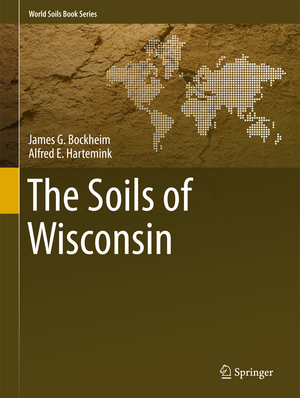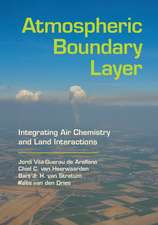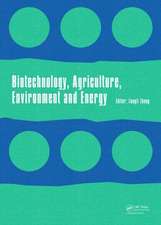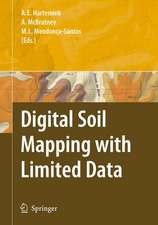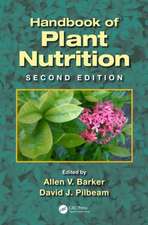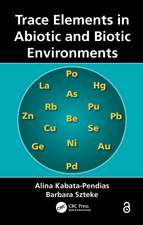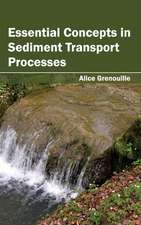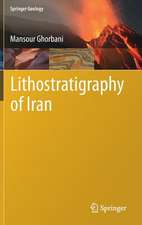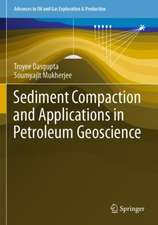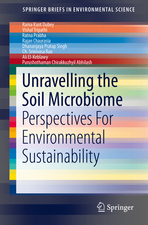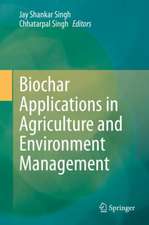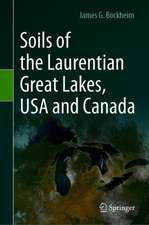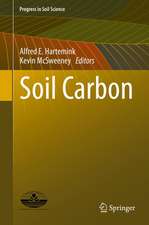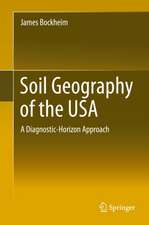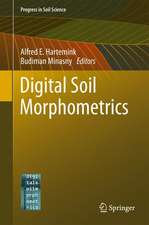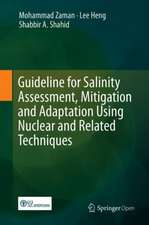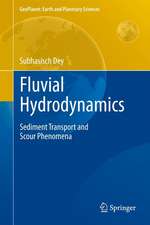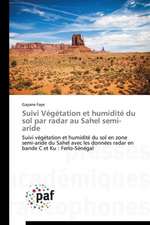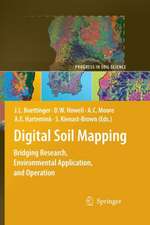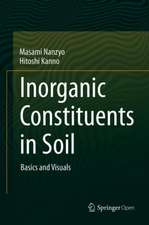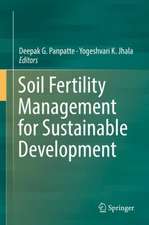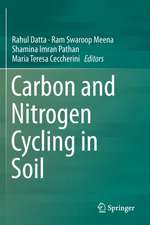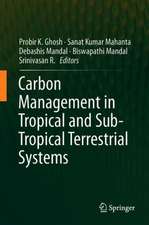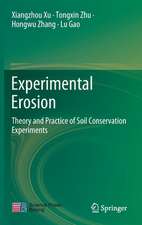The Soils of Wisconsin: World Soils Book Series
Autor James G. Bockheim, Alfred E. Harteminken Limba Engleză Hardback – 7 mar 2017
| Toate formatele și edițiile | Preț | Express |
|---|---|---|
| Paperback (1) | 711.77 lei 38-44 zile | |
| Springer International Publishing – 19 iul 2018 | 711.77 lei 38-44 zile | |
| Hardback (1) | 747.89 lei 38-44 zile | |
| Springer International Publishing – 7 mar 2017 | 747.89 lei 38-44 zile |
Din seria World Soils Book Series
- 18%
 Preț: 962.81 lei
Preț: 962.81 lei - 18%
 Preț: 1231.01 lei
Preț: 1231.01 lei - 18%
 Preț: 974.98 lei
Preț: 974.98 lei - 18%
 Preț: 791.71 lei
Preț: 791.71 lei - 18%
 Preț: 914.20 lei
Preț: 914.20 lei - 18%
 Preț: 998.97 lei
Preț: 998.97 lei - 18%
 Preț: 978.12 lei
Preț: 978.12 lei - 15%
 Preț: 649.87 lei
Preț: 649.87 lei - 15%
 Preț: 646.62 lei
Preț: 646.62 lei - 18%
 Preț: 739.62 lei
Preț: 739.62 lei - 15%
 Preț: 649.87 lei
Preț: 649.87 lei - 18%
 Preț: 949.23 lei
Preț: 949.23 lei - 15%
 Preț: 642.65 lei
Preț: 642.65 lei - 20%
 Preț: 607.19 lei
Preț: 607.19 lei - 24%
 Preț: 762.77 lei
Preț: 762.77 lei - 24%
 Preț: 1076.16 lei
Preț: 1076.16 lei - 24%
 Preț: 771.02 lei
Preț: 771.02 lei - 20%
 Preț: 579.73 lei
Preț: 579.73 lei - 20%
 Preț: 574.08 lei
Preț: 574.08 lei - 24%
 Preț: 921.13 lei
Preț: 921.13 lei - 20%
 Preț: 609.00 lei
Preț: 609.00 lei - 24%
 Preț: 751.00 lei
Preț: 751.00 lei - 24%
 Preț: 861.56 lei
Preț: 861.56 lei - 24%
 Preț: 966.56 lei
Preț: 966.56 lei - 24%
 Preț: 816.95 lei
Preț: 816.95 lei - 20%
 Preț: 579.73 lei
Preț: 579.73 lei - 24%
 Preț: 602.44 lei
Preț: 602.44 lei - 20%
 Preț: 591.82 lei
Preț: 591.82 lei - 18%
 Preț: 907.11 lei
Preț: 907.11 lei - 20%
 Preț: 589.58 lei
Preț: 589.58 lei - 24%
 Preț: 640.77 lei
Preț: 640.77 lei - 24%
 Preț: 813.41 lei
Preț: 813.41 lei - 24%
 Preț: 886.56 lei
Preț: 886.56 lei
Preț: 747.89 lei
Preț vechi: 984.07 lei
-24% Nou
Puncte Express: 1122
Preț estimativ în valută:
143.15€ • 155.55$ • 120.33£
143.15€ • 155.55$ • 120.33£
Carte tipărită la comandă
Livrare economică 16-22 aprilie
Preluare comenzi: 021 569.72.76
Specificații
ISBN-13: 9783319521435
ISBN-10: 3319521438
Pagini: 389
Ilustrații: XXI, 393 p. 189 illus., 144 illus. in color.
Dimensiuni: 210 x 279 mm
Greutate: 1.51 kg
Ediția:1st ed. 2017
Editura: Springer International Publishing
Colecția Springer
Seria World Soils Book Series
Locul publicării:Cham, Switzerland
ISBN-10: 3319521438
Pagini: 389
Ilustrații: XXI, 393 p. 189 illus., 144 illus. in color.
Dimensiuni: 210 x 279 mm
Greutate: 1.51 kg
Ediția:1st ed. 2017
Editura: Springer International Publishing
Colecția Springer
Seria World Soils Book Series
Locul publicării:Cham, Switzerland
Cuprins
Introduction.- History of soil mapping and research.- Soil-forming factors.- Soil-forming processes.- General soil regions.- Diagnostic horizons and soil taxa in Wisconsin.- Taxonomic soil regions of Wisconsin.- Alfisols.- Spodosols.- Entisols.- Mollisols.
Notă biografică
Dr. Bockheim was professor of Soil Science and of Forest and Wildlife Ecology and at the Nelson Institute for Environmental Studies at the University of Wisconsin from 1975 until his retirement until 2015. He has conducted research in forest soils and pedology throughout the state and in the Upper Peninsula of Michigan. His previous books include, Pedodiversity (2013; with J.J. Ibáñez); Soil Geography of the USA: a Diagnostic-Horizon Approach (2014); Cryopedology (2015); and The Soils of Antarctica (2015).
Dr. Hartemink has been professor of Soil Science at the University of Wisconsin since 2011. He has examined soils throughout the world and was previously with ISRIC World Soil Information. His previous books include Soil Fertility Decline in the Tropics: with Case Studies on Plantations (2003); The Future of Soil Science (2006); Invasion of Piper Aduncum in the Shifting Cultivations Systems of Papua New Guinea (2006); Digital Soil Mapping with Limited Data (2008; with A.B. McBratney); Soil Science (2009; with A.B. McBratney); Soil Carbon (2014; with K. McSweeney); and Digital Soil Morphometrics (2016; with B. Minasny).
Textul de pe ultima copertă
This book provides an up-to-date and comprehensive report on the soils of Wisconsin, a state that offers a rich tapestry of soils. It discusses the relevant soil forming factors and soil processes in detail and subsequently reviews the main soil regions and dominant soil orders, including paleosols and endemic and endangered soils. The last chapters address soils in a changing climate and provide an evaluation of their monetary value and crop yield potential. Richly illustrated, the book offers both a valuable teaching resource and essential guide for policymakers, land users, and all those interested in the soils of Wisconsin.
Caracteristici
Provides an up-to-date analysis of the function, origin and classification of the soils of Wisconsin and their different regions Combines official soil descriptions, laboratory characterizations, soil classification data, and the results of the Web Soil Survey Offers a written and digital archive for students, policymakers, and all those interested in the state’s natural resources Includes supplementary material: sn.pub/extras
